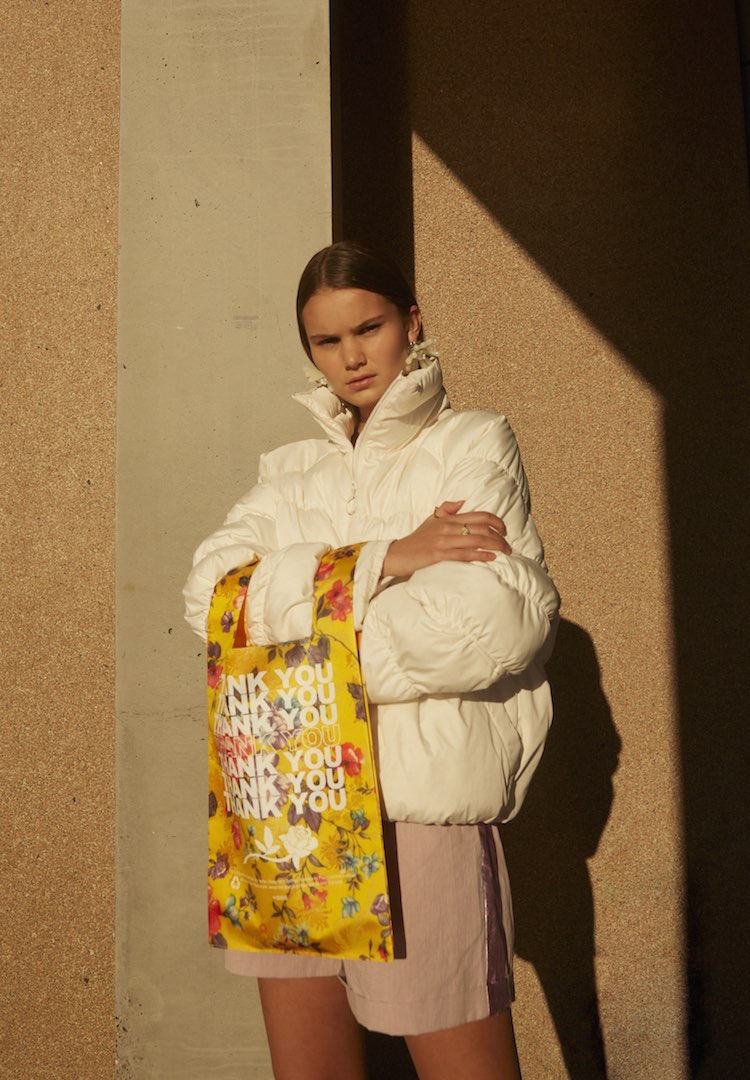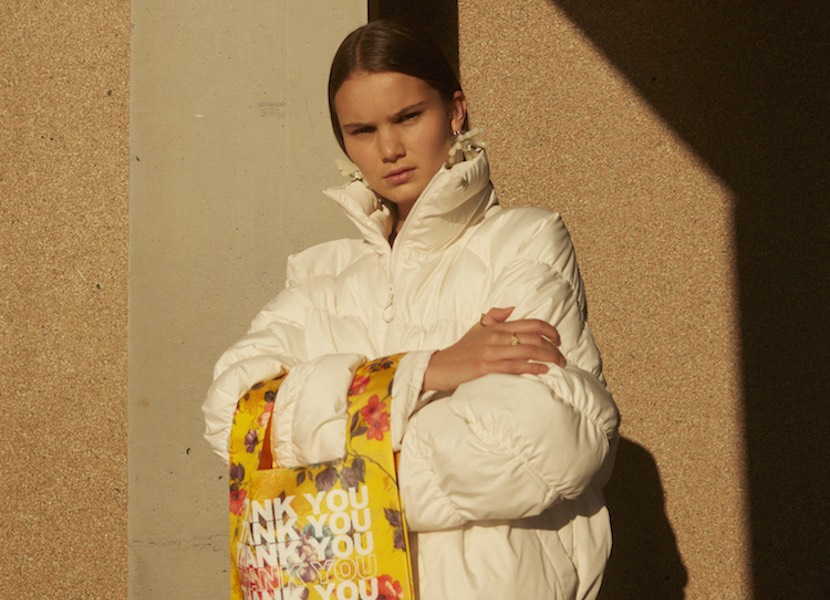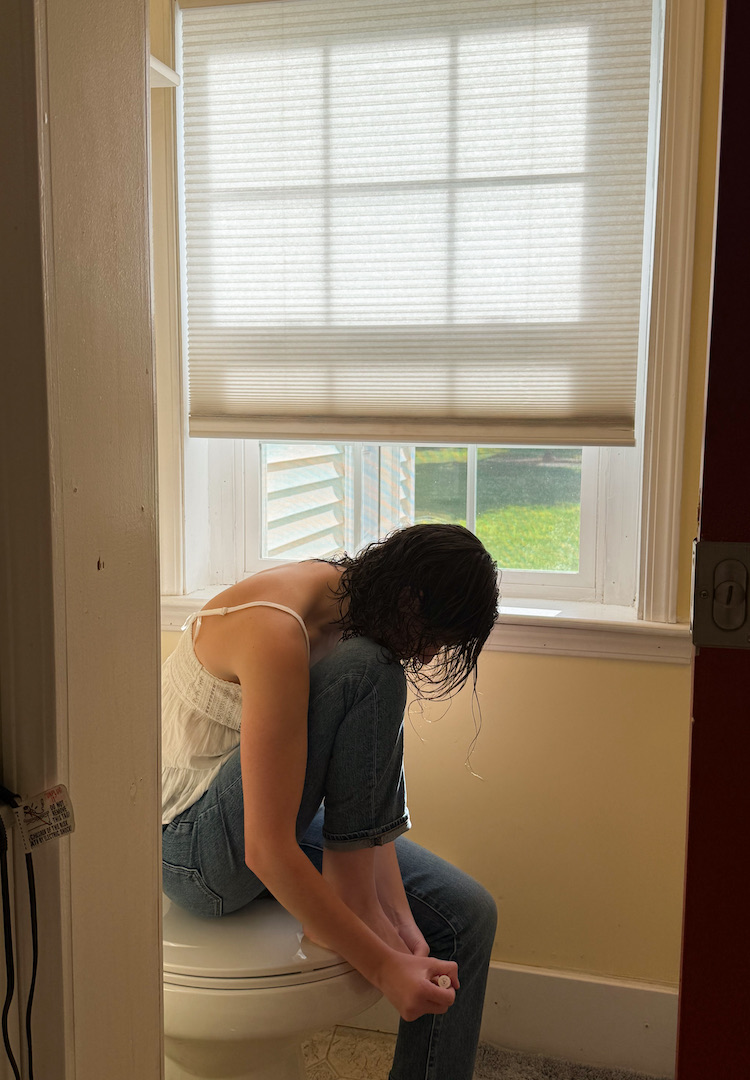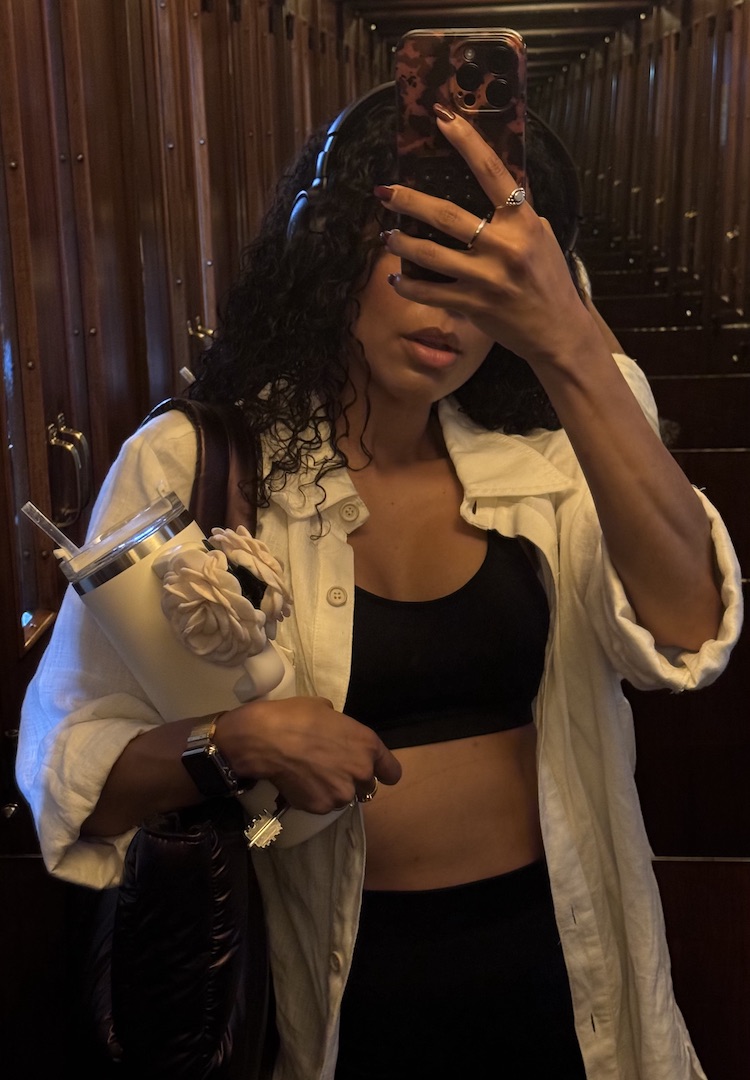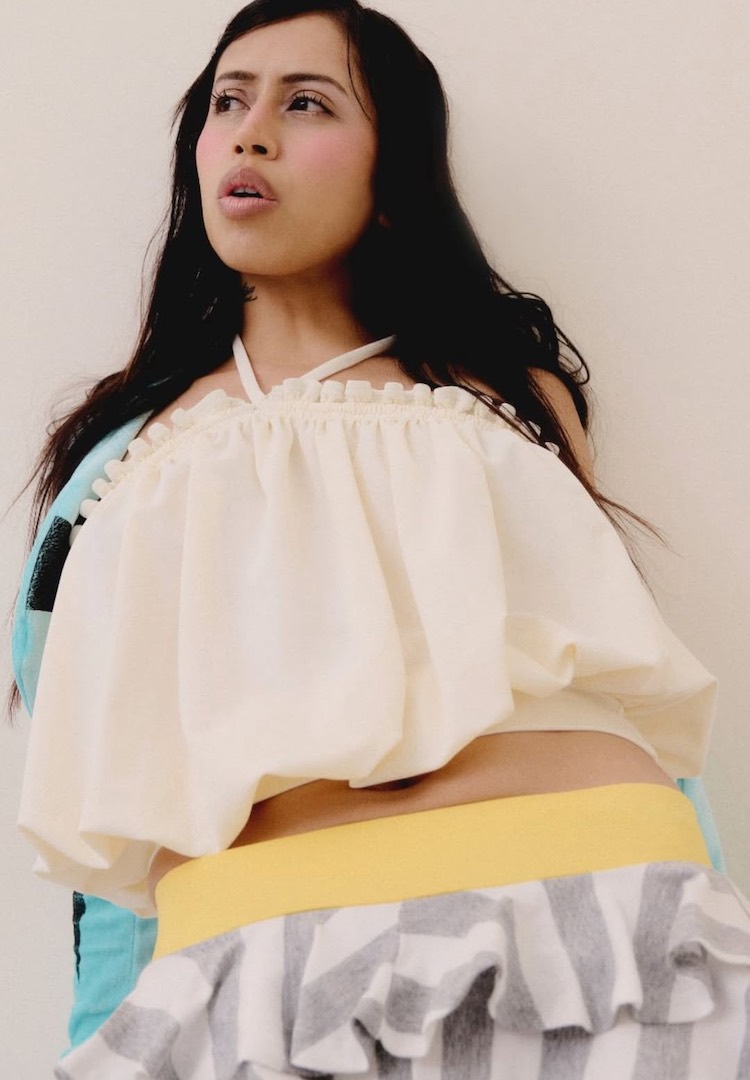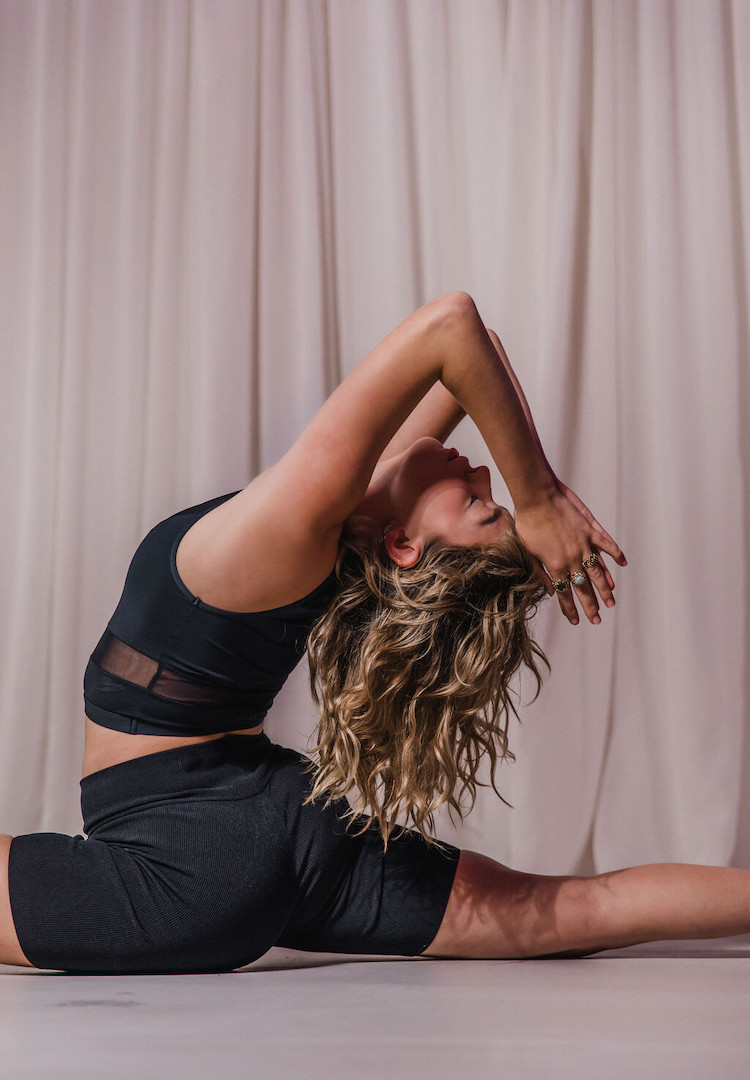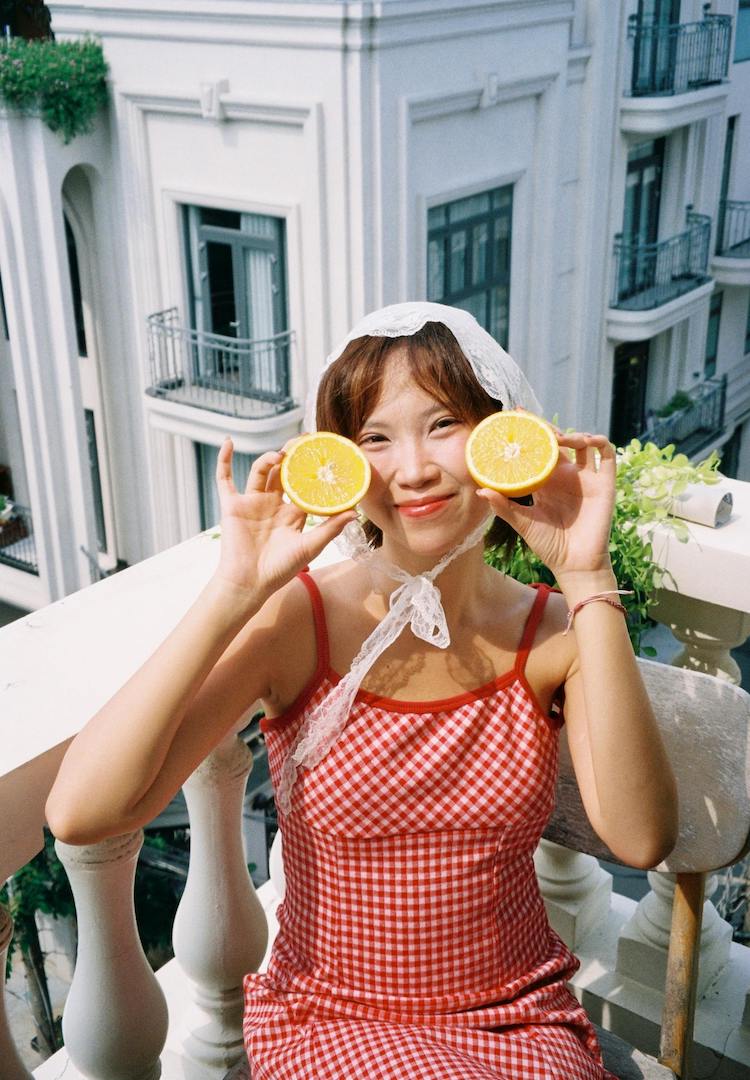Are we all ‘emotional shopping’ right now?
PHOTOGRAPHY BY LEXI LAPHOR
WORDS BY JASMINE WALLIS
Retail therapy.
As the great lyricist Taylor Swift once said, August has “slipped away into a moment in time” and for half of Australia, August has slipped away into the latest round of lockdowns (and so too has September). In the last few days of August, my TikTok feed was filled with videos from Northern Hemisphere folks. They shared wrap-ups of a summer full of road trips and hanging out with friends set to Taylor’s aforementioned song, ‘August‘.
Many Australians wanted to join in on the trend but instead of time spent with friends, screenshots of online purchases shone across the screen, the Shein tops and Glassons orders looking out of sync to Taylor’s pared-back, cottagecore-esque song.
Keep up to date with ethical designers over at our Fashion section.
According to Australia Post online purchases grew by 36.5 per cent during July 2021 in NSW because of lockdowns, with the whole nation seeing delays in deliveries recently due to the sheer volume of parcels. Between this and the amount of ‘August’ videos on my feed, are we all using retail therapy to cope right now?
@maddiiebrookerip my bank account #augustslippedaway #stayinghome #shoppingaddiction #onlineshopping #melbournelockdown #lockdown7 #covid♬ august – M
Confessions of a shopaholic
One person who is trying to cope is frontline healthcare worker and emergency department nurse, Josie Bailey. As lockdowns stretch on, Josie’s begun to lose count of the number of parcels she has on the way. Alongside saving lives, the nurse shares that browsing online has become her “other full-time job” as she battles with frontline worker fatigue.
“I definitely tend to use shopping as a reward for dealing with difficult emotions or when I’m feeling the weight of pandemic fatigue. It’s so easy to just say ‘You deserve this!’ and buy something new to make myself feel better.”
Josie tells me that although she tried to curb her shopping habits in years gone by, the pandemic has seen that level of control go out of the window.
“It’s usually a whole roller coaster of emotions… the up and down of ‘Should I? Shouldn’t I?’, followed by the ‘Ah fuck it, what else is there to spend money on?’, and then finally the ‘How do I end up owing $200 to Afterpay every single fortnight?!’ guilt that follows.”
This guilt that Josie is speaking of isn’t uncommon among those of us feeling the pull of shopping addiction. Similar to a gambler’s high on the pokies, the bright lights and dopamine hits shopping sites provide can initially ease some tension but it’s often quickly followed by shame.
According to Mind Box Psychology, this shame can contribute to anxiety, depression, and low self-worth. And when you’ve learnt to fix those issues by shopping, the never-ending consumption cycle continues.
Reformed retail addict
In previous lockdowns, journalist Amanda Gunn was receiving at least three deliveries per week and at its worst, three times per day. After months of inserting her card number into websites gleefully, Amanda took a step back.
“It got to a point where it was excessive. My attitude shifted from buying to feel good or when I needed something, to just buying when I was bored or overwhelmed,” she tells me.
Her mindset changed during a walk while listening to a podcast on consumerism. “Shopping was no longer a novelty because I had everything I needed and I was doing it at the expense of things that provide me long-term satisfaction.
“The realisation that my shopping habits were detrimental to myself, the environment and my bank account made me decide to put shopping for clothes on hold. So far it has been two full months, which, considering the rate I was buying things at, is a lot. As a shopaholic, it hasn’t been easy.”
It’s no surprise that we turn to shopping to numb or distract ourselves while living under a capitalist system. If you’ve been conditioned to believe that a new jacket will give you a fresh identity, that the perfect diamond will bring you everlasting love and that an eye cream will stop you from ageing, then why wouldn’t getting a parcel in the mail help cure those lockdown blues?
As Josie says, “With social media and constant advertising it’s so easy to just end up browsing through a whole array of different products at any time”.
Curb your credit card
It’s important to note that there’s a big difference between a bit of retail therapy here and there and full-blown shopping addiction. Basically, retail therapy can give you something to look forward to but as it progresses into addictive behaviour, that innocent shop can have detrimental impacts on your life.
There’s actually a word for compulsive shopping: oniomania (onios meaning ‘for sale’ in Ancient Greek and ‘mania’ meaning excessive). So, how do we curb this ‘excessive’ behaviour? As much as Carrie Bradshaw and Rebecca Bloomwood romanticised it, being a shopaholic can do serious damage to both your bank and your brain.
Firstly, don’t be afraid to reach out for help. Although shopping is one of capitalism’s favourite addictions, it can still be an addiction. A qualified therapist can give you tools and cognitive behaviour therapy (CBT) to arm yourself against the tempting sale signs.
You could also manage your environment. Unsubscribe from those eye-catching brand newsletters, unfollow store accounts on social media, delete the apps and monitor your browsing habits. I ask our reformed retail junkie Amanda for her advice on ditching the debit card.
“Now I’ve stopped buying clothes and instead, I try to make my purchases experience-orientated. By that I mean, purchasing items that will encourage me to do something I love. For example, buying a coffee means going for a walk with a friend or purchasing gourmet produce encourages me to cook a nice dinner and drop leftovers at my family’s doorstep. Cliche as it may be, I find doing the things I love and seeing the people I care about is more fulfilling than buying a T-shirt, when I already have eight others.”
For advice on how to style the pieces you already own, head here.


